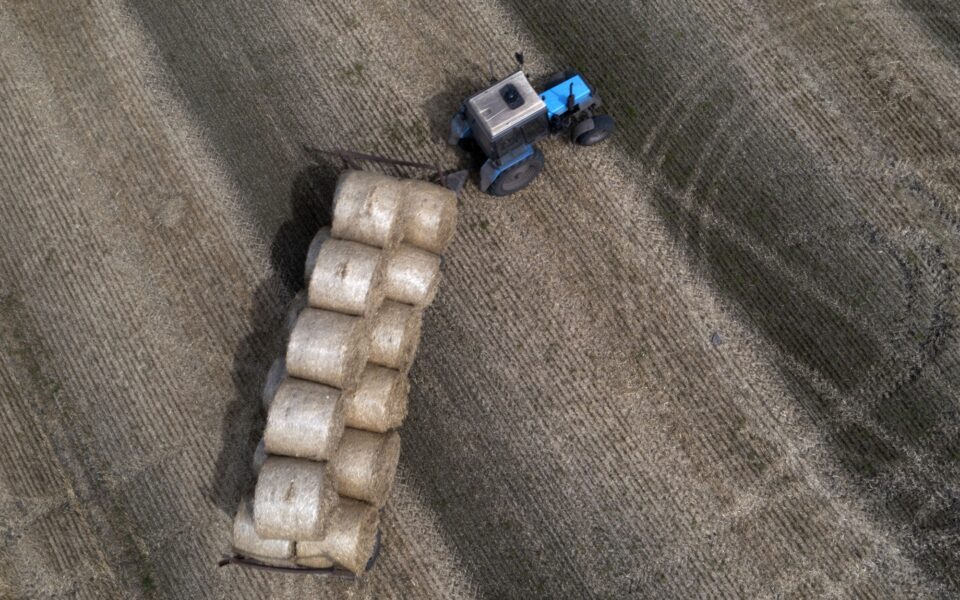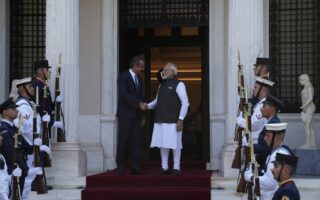Russia’s exit from Black Sea Grain Initiative

Russia is weaponizing food at the expense of people around the world, especially the poor and food-insecure. Let’s be clear: Children are going to bed hungry at night and parents are agonizing over feeding their children, all because of Russia’s overt, intentional actions. Russia’s withdrawal from the Black Sea Grain Initiative (BSGI) and targeting of Ukrainian grain intended for global markets are callous acts that will place countless lives at risk.
Ukraine has long been one of the world’s great sources of grain, with the vast majority of that grain shipped through Black Sea ports. In order to punish Ukraine, the Russian government is deliberately choosing to undermine global food security and price stability in Africa, Asia, and other regions dependent on exports from those ports.
The BSGI ensured the flow of grain and other food commodities from Ukraine’s ports. The BSGI enabled the shipment of nearly 33 million metric tons of Ukrainian grain and foodstuffs, including by the Greek shipping community. It contributed to stabilizing and lowering food prices by nearly 20 percent, after prices spiked following Russia’s full-scale invasion of Ukraine.
On July 17, 2023, Russia withdrew from the BSGI, and grain prices initially rose sharply as a result. Russia did not stop its actions with withdrawal. It targeted attacks on grain silos and other port infrastructure in Ukraine. It threatened the cargo ships of third countries if they attempted to load grain from Ukrainian ports. It took advantage of higher prices for its own exports while keeping Ukrainian grain off the market. The International Monetary Fund estimates that Russia’s withdrawal from the BSGI will drive up global grain prices by 10-15 percent. Every percentage point increase in the cost of grains pushes food out of the reach of vulnerable people.
The world needs Ukrainian grain. Under the initiative, the UN World Food Program (WFP) procured over half its global wheat grain from Ukraine.
Russia is taking these actions at a time when the world is experiencing an alarming rise in food insecurity. Conflict, insecurity and the effects of climate change are exacerbating food insecurity for millions of people around the world.
Greeks are no strangers to the devastation of food insecurity and the life-saving power of food assistance. The Marshall Plan literally transformed the life of my family – and countless others. In fact, I might not even be here today without it. My mother still speaks with reverence of the blocks of yellow cheese that arrived in our village of Platanos at a time when people had nothing, not even running water. This act of solidarity gave my parents the opportunity to embark on a life they had never thought possible, and to give their children the promise of a better future.
Ukraine supplied the WFP with 725,000 metric tons of wheat under the BSGI. The BSGI, and the Greek shipping community that helped transport the grain and foodstuff, enabled the WFP to transport 29 shiploads to Afghanistan, Djibouti, Ethiopia, Kenya, Somalia, Sudan and Yemen. The BSGI was immensely successful in doing what it was meant to do – keep global grain prices from rising dramatically, while getting food to those who needed it most around the world.
The United States has not imposed sanctions on the export of Russian agricultural commodities. This is because of our commitment to global food security
While it thwarts shipments from Ukraine, Russia continues to sell record amounts of its own grain. The United Nations has facilitated Russian exports of food, coordinating with the private sector and with the United States, European Union and United Kingdom to address any concerns raised by Russia, even though G7 sanctions do not target Russian food and fertilizer exports.
Despite what Russia’s misinformation might tell you, the United States has not imposed sanctions on the export of Russian agricultural commodities. This is because of our commitment to global food security. Russia’s agricultural exports have recovered to pre-war levels and could be even higher if not for its self-imposed export restrictions.
Putin’s offer to donate grain to African countries, if it ever happens, would not come close to compensating for the millions of tons of Ukrainian grain that could be exported each month through the BSGI. African leaders have said that the market matters more. The BSGI’s exports help to lower global prices, which helps all countries.
South African President Cyril Ramaphosa explained: “We would like the Black Sea initiative to be implemented and that the Black Sea should be open… We are not here to plead for donations for the African continent.” The African Union, secretary-general of the United Nations, and Pope Francis have called on Russia to reinstate the BSGI.
I applaud the government of Greece for its leadership in hosting President Volodymyr Zelenskyy and convening regional and EU leaders in Athens last week. These discussions are an important step in engaging on these critical issues and further strengthening the international community’s support of Ukraine.
Russia must stop its cruel actions. It must permit the shipment of life-sustaining grain that feeds millions around the world. It must stop targeting stored grain and ports. It must stop threatening ships of non-combatant countries. Russia must stop weaponizing food.
George J. Tsunis is the US ambassador to Greece.



